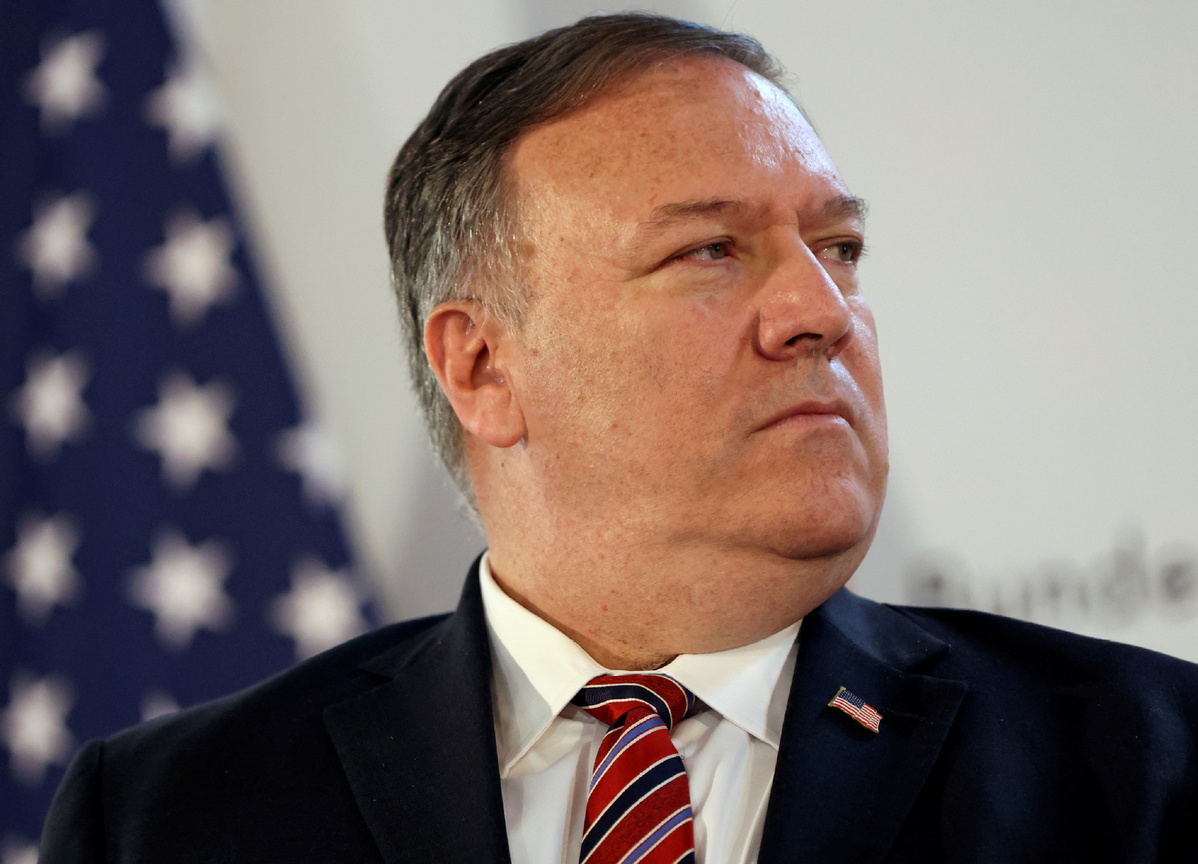Is China making aggressive actions on the sea areas?
Mike Pompeo: To help deter China from aggression, the US has created a Space Force and has ramped up its freedom of navigation operations out and throughout the East and South China Seas, and in the Taiwan Strait as well.


US Secretary of State Mike Pompeo, in his recent speech at the Richard Nixon Presidential Library, negated every aspect of China-US relations, maliciously attacked the leadership of the Communist Party of China (CPC) and China's political system, and attempted to drive a wedge between the CPC and the Chinese people. He also wantonly criticized China's domestic and foreign policies, spread the so-called "China threat", and called for an anti-China alliance to contain China's development.
Pompeo's baseless, fact-distorting speech misrepresents history and the reality. It is full of ideological prejudice and driven by a Cold-War mentality. His remarks have not only been condemned by the Chinese people, but also criticized and opposed by sensible people in the United States as well as the international community.
To debunk the lies fabricated by Pompeo, let the facts speak for themselves.
Rumor:
Mike Pompeo: To help deter China from aggression, the US has created a Space Force and has ramped up its freedom of navigation operations out and throughout the East and South China Seas, and in the Taiwan Strait as well.
Fact: Aggression and expansion are never in the genes of the Chinese nation throughout its 5,000 years of civilization. China maintains continuity and stability in its foreign policy, and earnestly upholds international law including the UN Charter and the UN Convention on the Law of the Sea. China has never expanded its sovereignty claims, and is committed to negotiation and consultation to settle the territorial and maritime disputes with neighboring countries based on respect for historical facts and international law.
-- China respects and supports all countries' freedom of navigation and overflight in accordance with international law, and actively safeguards the security of international shipping passages. In fact, the South China Sea is currently one of the world's safest and freest sea passages. About 50 percent of merchant vessels in the world and one-third of international maritime trade pass through this sea area. More than 100,000 merchant ships sail through it annually. The navigation and overflight in the South China Sea have never been a problem. However, the United States has been using the pretext of "freedom of navigation and overflight" to undermine the sovereignty and security interests of littoral countries, and jeopardize regional peace and stability.
-- Since taking office, the current US administration has equated the "freedom of navigation" with the freedom of military action and carried out more than 20 so-called "freedom of navigation operations" in the South China Sea. This year, the United States has sent nearly 3,000 military flights over the sea area. According to a "South China Sea Strategic Situation Probing Initiative" website report on Aug. 5, a US Air Force E-8C surveillance plane was seen reconnoitering as close as 59.27 nautical miles (about 109.77 km) off the coast of south China's Guangdong Province at about 21 o'clock. In July, the E-8C aircraft appeared six times in two weeks in the sea area to conduct reconnaissance operations. The United States also sent two aircraft carriers to these waters for military exercises while calling on its allies and partners to send warships and join it in making waves in the South China Sea. These practices by the United States have posed a serious threat to regional peace and stability and don't serve the interests of all littoral countries in the region.
-- Outer space belongs to all mankind. China calls for the peaceful use of outer space and opposes weaponization or an arms race there. This serves the common interests of all countries and is a shared responsibility. China is committed to jointly safeguarding lasting peace and tranquility in outer space, and opposes making it a new battlefield. The United States, in contrast, has described outer space as a new war-fighting domain, built a Space Force and a Space Command, and planned to deploy anti-missile weapons, which will trigger an arms race and increase the risk of weaponizing outer space and making it a battlefield.
- Braving cold, quake rescuers race against time on world's highest plateau
- Data shows China's water governance achievements
- Notable progress in China's water management
- All-China Women's Federation sends much-needed relief supplies to Xizang
- More aftershocks expected following deadly Xizang earthquake
- HKSAR chief executive mourns victims of Xizang 6.8-magnitude quake





































